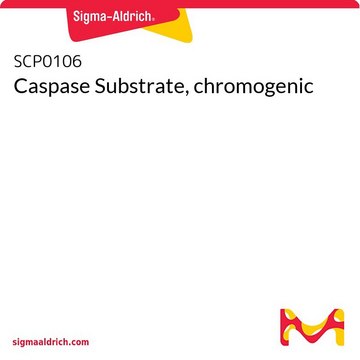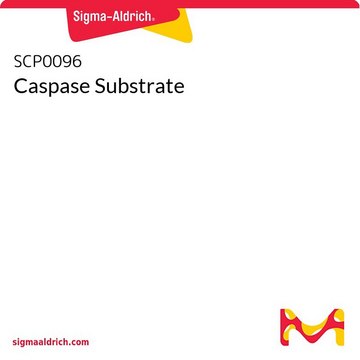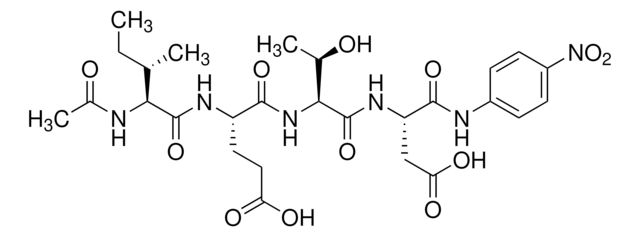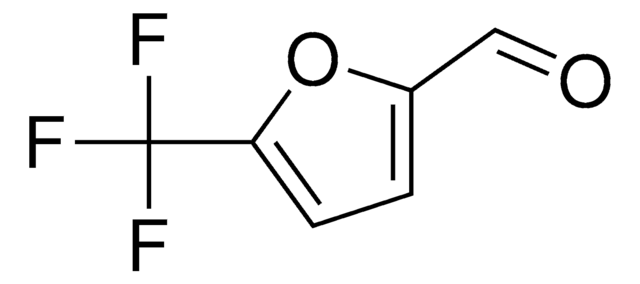SCP0105
Caspase Substrate, chromogenic
≥95% (HPLC), lyophilized
Sign Into View Organizational & Contract Pricing
All Photos(1)
About This Item
Empirical Formula (Hill Notation):
C31H43N9O14
Molecular Weight:
765.73
UNSPSC Code:
12352202
NACRES:
NA.32
Recommended Products
Product Name
Caspase Substrate, chromogenic,
Assay
≥95% (HPLC)
form
lyophilized
composition
Peptide Content, ≥75%
storage condition
protect from light
storage temp.
−20°C
Amino Acid Sequence
Ac-Val-Asp-Gln-Gln-Asp-pNA
Application
Ac-VDQQD-pNA (acetyl-Val-Asp-Gln-Gln-Asp-p-nitroanilide) is used as a chromogenic caspase substrate.
Storage Class Code
11 - Combustible Solids
WGK
WGK 1
Flash Point(F)
Not applicable
Flash Point(C)
Not applicable
Choose from one of the most recent versions:
Certificates of Analysis (COA)
Lot/Batch Number
Don't see the Right Version?
If you require a particular version, you can look up a specific certificate by the Lot or Batch number.
Already Own This Product?
Find documentation for the products that you have recently purchased in the Document Library.
Gary K Smith et al.
Archives of biochemistry and biophysics, 399(2), 195-205 (2002-03-13)
Because of the intimate role of caspase-8 in apoptosis signaling pathways from FAS, TNFR1, and other death receptors, the enzyme is a potentially important therapeutic target. We have generated an Escherichia coli expression construct for caspase-8 in which a His-tag
Vasoactive intestinal peptide inhibits TNF-α-induced apoptotic events in acinar cells from nonobese diabetic mice submandibular glands.
Calafat M, Larocca L, Roca V, Hauk V, et al.
Arthritis Research, 11, R53-R53 (2009)
Natasha Ann Pereira et al.
Biochemical and biophysical research communications, 377(3), 873-877 (2008-11-04)
Many designated substrates and inhibitors have been widely used to investigate the roles of caspases in apoptotic death during mammalian cell culture. However, the specificities of these substrates and inhibitors have not been systematically evaluated. As a result, conclusions on
Our team of scientists has experience in all areas of research including Life Science, Material Science, Chemical Synthesis, Chromatography, Analytical and many others.
Contact Technical Service








